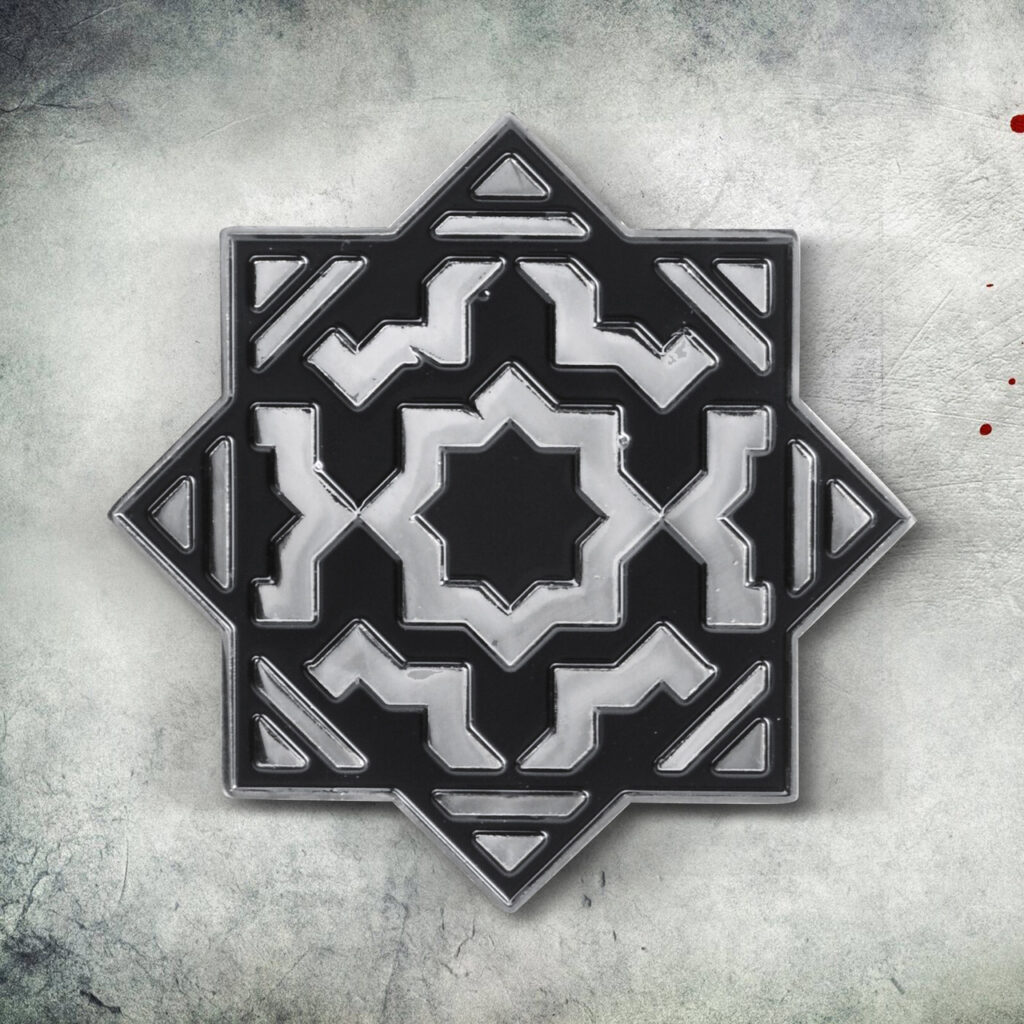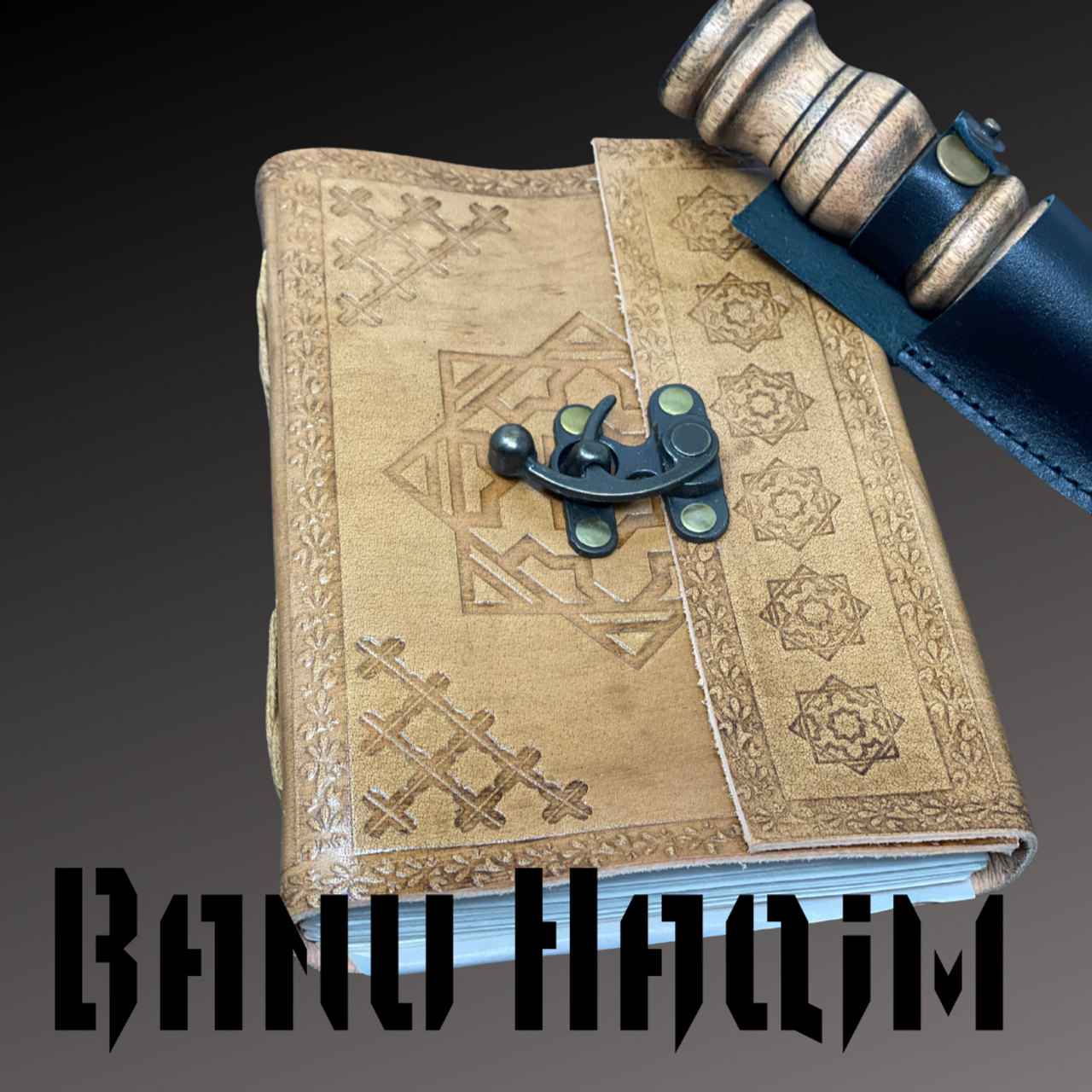“Now that the Blood Curse has been broken, the Banu Haqim once again thirst for Kindred blood. They bear our clan a great enmity, and the secrets of the Blood are known to them. We must step ever carefully in the Night lest their vengeance be realized.”
– Santiago de la Casa de Tremere, Primogen
The Banu Haqim is a clan balanced between judges, warriors, and scholars, representing a triad of decision, action, and knowledge. Some members of the clan act as unbiased judges working to solve constant infighting and bickering within the growing Kindred population. The Judges have produced many lawmakers and rational thinkers who examine all sides of a situation before acting. Some take on martial roles, acting as deadly executioners who carry out judgments swiftly and silently. Others are scholars Embraced for their hunger for knowledge that is carried beyond life, while some are accomplished sorcerers who experiment with blood magic to battle threats that swords cannot touch.
The one constant among all Judges is a strong sense of justice. With the changing times, most have branched outwards from the clan’s original laws of conduct, but every one of these Kindred subscribes zealously to some code of ethics – religious doctrine, a constitution, a personal ideology, and so forth. They follow this code in every aspect of their unlives, and they expect others to do the same or pay for their crimes in blood.
In modern nights, the Judges still play a pivotal, often unseen role in vampiric society. They follow in their progenitors’ footsteps as defenders, judges and executioners of the Kindred world, and they tend to keep themselves at a neutral distance from politics and Courts so they can better carry out those duties. The clan has earned a well-deserved reputation as assassins, for when someone has been judged guilty, the Banu Haqim are quick to strike them down and take payment in blood.
Disciplines
Blood Sorcery: The study of sorcerous manipulation of vitae is part of the Banu Haqim legacy. Some warriors tend towards the aspects of this Discipline that weaponize their Blood to make an assassination go smoothly. Others use the manipulation of Blood as a tool for doling out punishment or drawing out the truth from a less-than-cooperative accused.
Celerity: The Judges rely on speed and precision in order to catch a target, outmaneuver them in the field, and prevent their quarry from escape. If a Banu Haqim assassin strikes fast enough, they may complete their mission before their target even realizes what is happening.
Obfuscate: Being able to hide themselves without cover significantly helps the Banu Haqim stalk their targets and learn their patterns. For the less violent of the clan, this Discipline is useful for observing how others interact without their knowledge, allowing the Judges to see their target’s true colors rather than their best public facade.
Archetypes
Judge: These Kindred have existed long enough to be firmly confident in their own code. Their idea of “right” is, of course, the best possible “right,” and they have become just as confident in their ability to judge others’ actions. They are often the lawmakers of the city, following in their progenitor’s footsteps, dispensing justice among both Kindred and kine.
Former Assassin: These Banu Haqim were once called upon when justice needed to be delivered at the end of a blade – or when someone offered the right price. Stealthy and deadly, they struck seemingly from nowhere and disappeared, leaving no evidence. However, the clan has joined polite society now, so these Kindred often act as protectors of their domains. However, training in murder never goes away, and, for the right price, a former assassin might be persuaded to do one more job.
Scholar: Masters over blood magic, scholars might study sorcery out of a desire to learn everything they can. Perhaps they want to understand their clan’s Bane. Perhaps they are simply fascinated by the intricacies and properties of vitae. Whatever their motivation, scholars who integrate with other Kindred have chosen to put that knowledge towards the betterment of vampiric society.
Bane
The Banu Haqim have been cursed with an incredible lust for the vitae of other vampires. From the first sip, they are on the edge of losing control and drinking everything they can, even to the point of committing diablerie, the act of devouring another vampire’s essence. When a Banu Haqim tries to Slake one or more Hunger with vitae from another Kindred, they must immediately test for Hunger Frenzy against a Difficulty of 2 + Bane Severity. If they fail this challenge, they will enter a Frenzy and continue gorging on their Kindred meal. If not stopped, they will attempt to drain their victim and commit diablerie.
Compulsion: Judgment
Each member of the clan has their own code of ethics that they follow, and that they expect others to follow. Blood or ‘public trial’ is the only appropriate payment to absolve the judged of their transgression. When this Compulsion is triggered, for the rest of that scene the Banu Haqim is compelled to pass judgment on anyone they observe acting against one of the Banu Haqim’s Convictions. In combat, this can be satisfied by Slaking at least one Hunger from the offender. Out of combat, this can be satisfied by making a public declaration in front of the Banu Haqim’s peers about the perceived ‘crime’ that has been committed. Until they do so, or until the Scene ends, the Banu Haqim suffers the Impaired Condition.
Banu Haqim Related Products from By Night Studios










